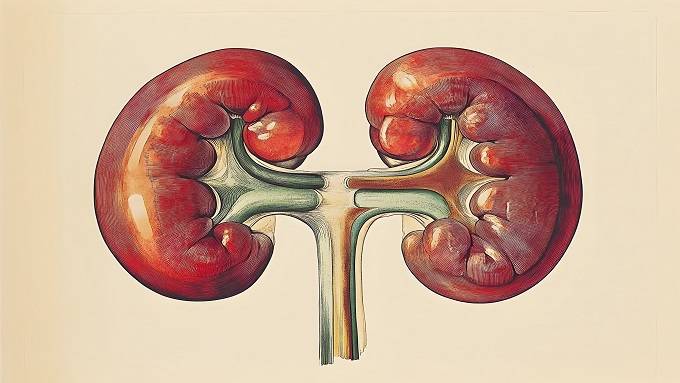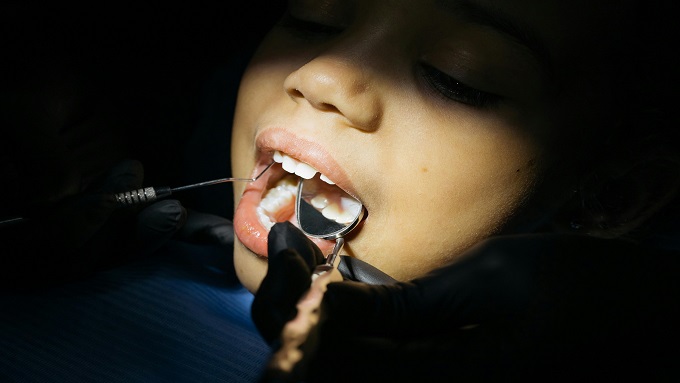PROFIL PENDERITA GASTRO ESOPHAGEAL REFLUX DISEASE (GERD) DAN NON-EROSIVE REFLUX DISEASE (NERD) DI RSUD DR. SOETOMO SURABAYA
Downloads
Background: Gastro Esophageal Reflux Disease (GERD) is a condition when food that had been ingested moves back up from the stomach to the esophagus periodically, causing heartburn. GERD cases that are followed up by esophagogastroduodenoscopy (EGD) can be diagnosed as Non-Erosive Reflux Disease (NERD) if there are no findings of mucosal damage at the esophagus. Objective: The objective is to study the overall prevalence of GERD and NERD patients on January until December of 2015, categorizing them according to age groups, gender, grade of esophageal mucosal damage according to Los Angeles grading, and also other EGD findings. Material and method: This is a descriptive research using secondary data collected from patients' medical record. Patients that are diagnosed as GERD or NERD are included as sample. Data are collected and processed by Microsoft Office Excel 2007. Result: A total of 122 medical records were collected, with 116 GERD patients and 6 NERD patients. There was increase of prevalence of GERD patients shown following the increase of age groups, while prevalence of NERD patients between age groups fluctuate. Both GERD and NERD patients are dominated by women, that is 62 patients (53.4%) and 5 patients (83.3%) respectively, compared to male, that is 54 GERD patients and 1 NERD patient. According to Los Angeles grading, the patients are mostly categorized as grade A (14.7%). However, there were 88 unclassified cases found so the result arguably needed a bigger sample and/ or data written in the medical record might not be clearly stated. The most dominant EGD finding in GERD patients was erosive gastritis (24.8%). Conclusion: There were 95% GERD patients and 5% NERD patients discovered in this study. The profile of GERD patients in this case was dominantly found in the age group of more than 50 years old, women, grade A, and with erosive gastritis in the EGD findings. The profile of NERD patients was not specific to a certain age group, but mostly found in women.
Bestari, M.G., 2011. Penatalaksanaan Gastroesophageal Reflux Disease (GERD). Continuing Medical Education, 38(7): 490-492.
Dent, J. El-Serag, H.B.Wallander, M.A. Johansson, S., 2005. Epidemiology of Gastro-Oesophageal Reflux Disease: A Systematic Review. Gut,54(5): 710-717.
Geeraerts, B. & Tack, J., 2008. Functional Dyspepsia: Past, Present, and Future. J Gastroenterol, 43(4): 251-255.
Gerson, L.B. Kahrilas, P.J Fass, R., 2011. Insights Into Gastroesophageal Reflux Disease–Associated Dyspeptic Symptoms. Clinical Gastroenterology and Hepatology, 9(10): 824-833.
Jung, H.K., 2011. Epidemiology of Gastroesophageal Reflux Disease in Asia: A Systematic Review. J Neurogastroenterol Motil, 17(1): 14-27.
Kotzan, J. Wade, W. Yu, H.H., 2001. Assessing NSAID Prescription Use as a Predisposing Factor for Gastroesophageal Reflux Disease in a Medicaid Population. Pharmaceutical Research, 18(9): 1367-1372.
McNally, P., 2000. Clinical Manifestations, Natural History, and Differential Diagnosis of Reflux Esophagitis.Dalam: R. Orlando, ed. 2000. Gastroesophageal Reflux Disease. Florida: CRC Press Bab 1.
Nobakht, H. et al., 2016. Association between Pattern of Gastritis and Gastroesophageal Reflux Disease in Patients with Helicobacter Pylori Infection. Middle East Journal of Digestive Diseases, 8(3): 206-211.
Nusi, I.A., 2015. Buku Ajar Ilmu Penyakit Dalam Fakultas Kedokteran Universitas Airlangga Rumah Sakit Pendidikan Dr. Soetomo Surabaya. 2nd ed. Surabaya: Airlangga University Press.
Ravi Kumar, N.A.V.S.K. Gandhi, M.V.V. Sri Harsha, G., 2016. GERD Correlation between Clinical Symptoms and Endoscopic Findings: a Study of 200 Patients. Journal of Evolution of Medical and Dental Sciences, 5(81): 6038-6041.
Ruigómez, A. Rodríguez, L.A. Wallander, M.A. Johansson, S. Graffner, H. Dent, J., 2004. Natural History of Gastro-Oesophageal Reflux Disease Diagnosed in General Practice. Alimentary Pharmacology & Therapeutics, 20(7): 751-760.
Simadibrata, M. Rani, A. Adi, P. Djumhana, A. Abdullah, M. 2011.The Gastro-Esophageal Reflux Disease Questionnaire using Indonesian language: a Language Validation Survey. Medical Journal of Indonesia, 20(2): 125-130.
Vakil, N. et al., 2006. The Montreal Definition and Classification of Gastroesophageal Reflux Disease: a Global Evidence-Based Consensus. Am J Gastroenterol, 101(8): 1900-20.
1. The journal allows the author(s) to hold the copyright of the article without restrictions.
2. The journal allows the author(s) to retain publishing rights without restrictions.
3. The legal formal aspect of journal publication accessibility refers to Creative Commons Attribution 4.0 International License (CC-BY).
































